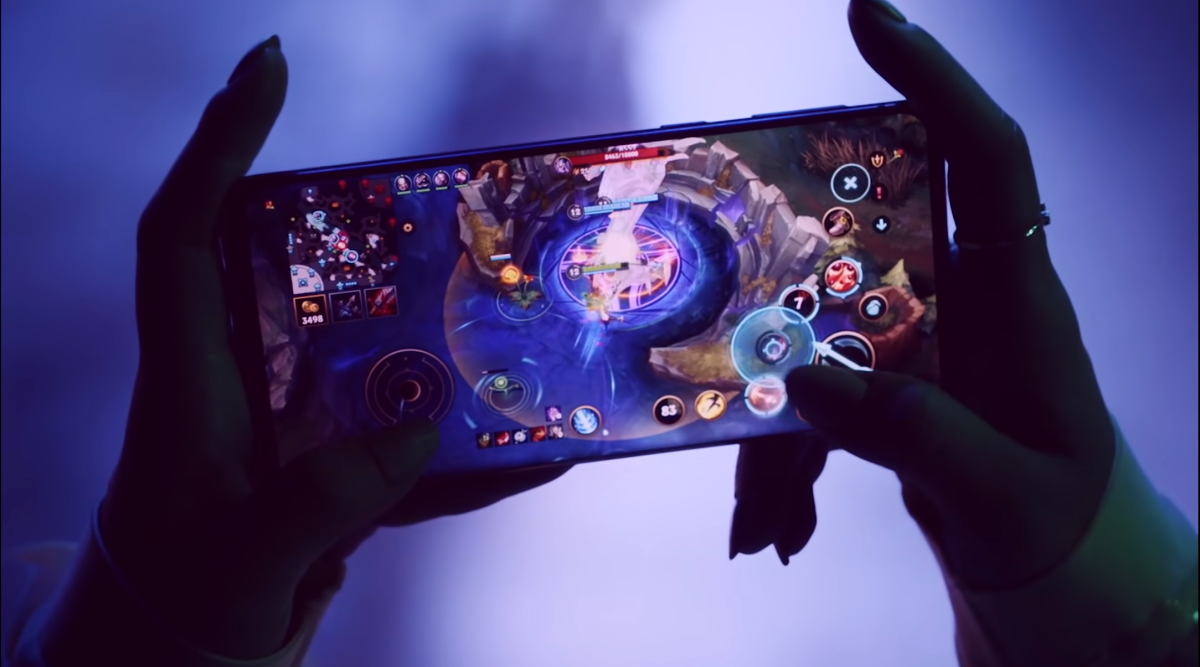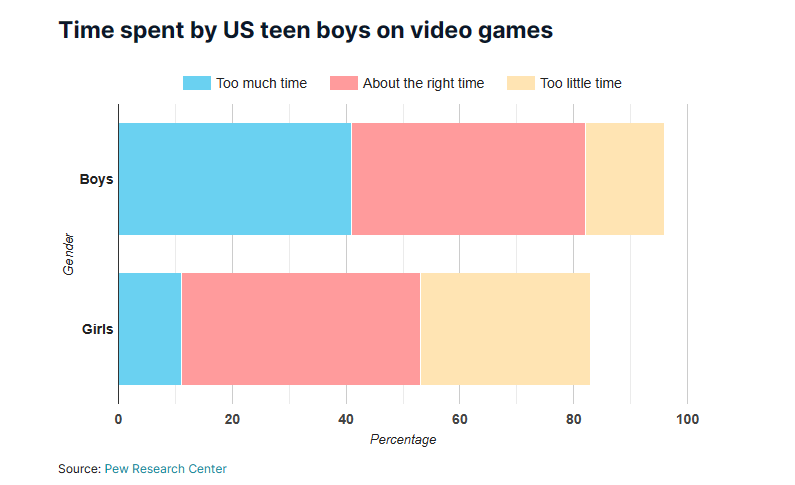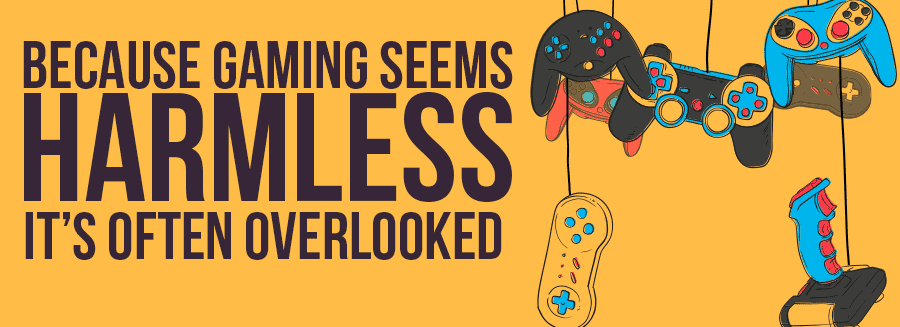Teenage Girl Uses £51000 Of Family's Life Savings On Mobile Phone Games
In a shocking turn of events, a Chinese teenage girl uses £51000 of family's life savings on mobile phone games, approximately $64,000 of her family's hard-earned savings.
Author:Xander OddityReviewer:Dr. Felix ChaosphereJun 12, 20238.7K Shares171.7K Views

In a shocking turn of events, a Chinese teenage girl uses £51000 of family's life savings on mobile phone games, approximately $64,000 of her family's hard-earned savings.
The 13-year-old girl, whose name has been withheld, reportedly accessed her mother's debit card details without permission, leading to the financial disaster that has left her mother in despair.
Teenage Girl Uses £51000 Of Family's Life Savings On Mobile Phone Games, Leaves Mother Devastated
The extent of the young girl's actions became evident when a concerned teacher from her boarding school reached out to her mother, Gong Yiwang, in late May. The teacher suspected that the girl might be developing an addiction to pay-to-play games, a suspicion that soon turned into a harsh reality.
When Gong decided to investigate further by checking their bank account, she was met with a devastating sight—only seven cents remained.
It was later discovered that between January and May, the teenager had made staggering purchases totaling £13,365 ($16,800) to acquire gaming accounts and had additionally spent £23,865 ($30,000) on in-game purchases.
Shockingly, she had also transferred a considerable sum of money to ten of her classmates, enabling them to indulge in similar purchases, exacerbating the financial crisis faced by her family.
Overwhelmed by the situation, Gong expressed her disbelief.
“„I never thought a 13-year-old girl could do this. I'm in a daze; my head feels like it's going to explode.- Gong Yiwang, Mother of the Young Girl
The devastating consequences of her daughter's actions have left Gong feeling helpless and distraught.
Attempting to understand how her daughter gained access to her card details, Gong discovered that she had unwittingly shared her password in the past when she asked her daughter to make a different purchase. The teenager, in her tearful confession, revealed that she had linked her mother's card to her own mobile phone but was unaware of the source of the money or the extent of her spending.
However, the girl pointed out that her friends also played a role in the ordeal. She explained that her friends persistently pestered her for financial assistance once they became aware of the substantial funds at her disposal. Fearing the consequences of involving her parents or teachers, she reluctantly complied with their demands, transferring money to them to avoid their constant badgering.
Unfortunately, the situation escalated, and her mother inevitably discovered the truth. Gong has since reached out to the companies responsible for the games, seeking refunds for the unauthorized purchases. As of now, she has not received full reimbursements, but she remains hopeful that her pleas will be heard and understood.
This distressing incident serves as a stark reminder of the dangers associated with unregulated spending in mobile games. Parents are urged to remain vigilant and maintain open lines of communication with their children regarding the responsible use of technology and finances.
Understanding Teenage Video Game Addiction - Warning Signs, Causes, And Impact
Teenage video game addiction, similar to other process addictions, activates the brain's reward center, releasing dopamine and creating a compulsive urge to continue playing. The World Health Organization (WHO) officially classified gaming disorder as a diagnosable mental health condition in 2018, with three main criteria for diagnosis.
- Inability to control the urge to play video games
- Prioritizing gaming over other activities
- Continued gaming despite negative consequences on relationships, academics, or work.
Warning Signs Of Video Game Addiction
The American Psychological Association (APA) identifies additional warning signs that may indicate teenage video game addiction. To be classified with internet gaming disorder, a teen needs to experience at least five of the following nine criteria over a 12-month period:
- Preoccupation with gaming
- Withdrawal symptoms when deprived of video games
- Increased tolerance and need to spend more time gaming
- Loss of interest in other activities
- Deceiving parents about gaming habits
- Missed educational opportunities
- Using gaming as an escape or coping mechanism
- Inability to control frequency and length of gaming sessions
- Ignoring psychological problems caused by excessive gaming.
Additionally, a comprehensive gaming disorder test should consider a teen's overall mood and self-care habits. Signs such as irritability, anxiety, depression, deteriorating grooming, poor eating habits, lack of sleep, or isolating oneself for gaming indicate the need for video game addiction treatment.
Causes Of Video Game Addiction
Increased exposure to digital media, including gaming, as well as other factors contribute to video game addiction. Research shows a correlation between teenage video game addiction and the prevalence of depression and anxiety. Adolescents with an insecure attachment to parents are also more susceptible to internet addiction, including gaming.
Teens often turn to excessive online gaming as a coping strategy for life problems. Video games provide an escape and a way to numb distress and discomfort. The high levels of collective trauma experienced by teens and their still-developing brains make them particularly vulnerable to video game addiction.
Teenage video game addiction is a serious concern recognized by globalhealth organizations. It manifests through compulsive gaming behavior and can have negative impacts on various aspects of a teenager's life.
Recognizing the warning signs, understanding the criteria for diagnosis, and addressing the underlying causes is essential for effective intervention and treatment. Promoting healthy coping strategies and fostering open communication can help mitigate the risks associated with video game addiction in teenagers.
Positive Effects Of Video Games On Teenagers
Contrary to popular belief, video games can have positive impacts on teenagers. Here are several reasons why virtual gaming can be beneficial:
- Improves cognitive functions -Research published by the American Psychological Association suggests that video gaming can enhance various cognitive skills, including attention allocation, visual processing, memory, reasoning, and perception. A meta-analysis of video games has shown that violent games, in particular, can improve a player's ability to think in different dimensions, similar to academic courses.
- Hand-eye coordination -Playing video games, especially shooter games, can improve spatial, visual, and hand-eye coordination skills in teenagers. These games often require players to track positions, speed, aim, and directions simultaneously. The brain processes this information and coordinates with the hands through keyboard or game controller actions. These skills have implications for achievement in science, technology, engineering, and mathematics fields.
- Quick thinking and accuracy -Video games train gamers to make quick decisions and adapt to unexpected changes in the game. They require acute attention and help develop the ability to think on their feet.
- Dexterity improvement - Online gaming enhances manual dexterity by utilizing keyboard shortcuts and requiring quick responses. Teens learn to navigate keyboard functions efficiently.
- Problem-solving abilities -Strategic video games, such as role-playing games, can aid in the development of problem-solving skills. Teenagers become adept at finding solutions and overcoming obstacles while playing these games.
- Mood enhancement and anxiety relief -Some games, like Angry Birds and Bejeweled II, provide instant happiness, relaxation, and mood improvement. They can serve as a source of emotional well-being and teach teenagers how to cope with failures.
- Promotion of incremental intelligence theory -Encouraging and praising teenagers for their efforts in solving puzzles or completing games helps develop a growth mindset, where they believe that intelligence is not fixed but can be improved through effort and time. Video games provide an ideal platform for acquiring such traits of thought.
- Other benefits -Educational video games can offer interactive ways of teaching school subjects, while pro-social games can enhance empathy in teens. It's important to note that the positive effects of video games depend on the specific games chosen, as violent and sexually explicit games may have more negative than positive impacts.

It is worth noting that girls tend to spend less time playing video games compared to boys.
While video games can have positive effects, it's essential to maintain a balanced approach and ensure that teenagers engage in other activities that promote physical exercise, social interaction, and overall well-being.
Parental guidance and monitoring of game content are crucial in maximizing the potential benefits of video games while mitigating any potential negative impacts.
Measures To Address Video Game Addiction In Children
Addressing this issue requires open communication, setting boundaries, and implementing effective strategies to manage gaming activities. Here are some measures to tackle video game addiction in children and promote a healthier balance in their lives.
Talking To Your Teen
Open communication and expressing your concerns about their gaming behavior can be the first step toward addressing video game addiction. Approach the conversation with empathy, highlighting your worries and the impact their excessive gaming may have on their well-being and daily life.
Setting Time Limits
Rather than completely removing access to gaming, work together with your teen to establish reasonable time limits for gaming. Gradually reduce the playtime, allowing them to adjust and find a balance between gaming and other activities. Lead by example and ensure that you also limit your own screen time.
Seeking Professional Help
If your efforts at home are not successful, consider consulting a therapist or enrolling your child in a de-addiction program. Professional guidance can provide valuable insights and support in addressing addiction and developing healthier habits.
Cognitive Behavioral Therapy (CBT)
A therapist may recommend cognitive behavioral therapy as an effective approach to combat video game addiction. CBT focuses on changing negative thoughts and behaviors related to gaming, encouraging alternative activities, and helping teens manage cravings and impulses. It may involve setting goals, implementing new routines, and offering rewards for adhering to healthy habits.
Effective Strategies For Managing Teen's Gaming Activities
Teenagers' excessive screen time and video game addiction can have adverse effects on their well-being. Implementing effective strategies can help manage their gaming activities and promote a healthier balance.
Acknowledge The Benefits And Risks
Recognize that video games can have certain benefits, such as improving hand-eye coordination and cognitive abilities. However, it is essential to be aware of the risks associated with excessive gaming, such as addiction and compromised academic performance.
Encourage Outdoor Activities
Encourage your teen to engage in outdoor activities and physical exercise. Encourage them to participate in sports, join clubs, or explore hobbies that promote social interaction and physical well-being.
Foster Effective Communication
Maintain open lines of communication with your teen about their gaming interests. Show genuine interest in their gaming experiences, discuss boundaries, and establish rules together. Encourage them to share their thoughts and concerns about gaming, creating a supportive and understanding environment.
Create Tech-Free Zones And Times
Designate certain areas or specific times in the day as tech-free zones. For example, establish mealtime as a screen-free period for the entire family to engage in face-to-face conversations and bonding activities.
Encourage Alternative Activities
Introduce and encourage alternative activities that capture your teen's interest outside of gaming. This could include art, music, reading, sports, or other hobbies that promote creativity, learning, and social interaction.
Be A Role Model
Lead by example and demonstrate healthy screen time habits yourself. Limit your own use of screens and show active involvement in non-screen activities. Engage in quality family time and encourage your teen to participate in activities together.
By implementing these strategies, you can effectively address video game addiction in children and help them develop a balanced approach to gaming and other important aspects of their lives. Remember, patience, understanding, and consistent support are key in the journey towards healthier habits and overall well-being.

How to save a loved one from game addiction | Matthias Dewilde | TEDxAntwerp
People Also Ask
How Can Parents Help Their Child Find A Healthy Balance Between Gaming And Other Activities?
Parents can encourage open communication, set clear boundaries and time limits, and provide alternative activities that align with their child's interests. They can also lead by example, limit their own screen time, and engage in activities together as a family.
Are There Any Specific Warning Signs That Indicate A Teenager May Be Developing A Video Game Addiction?
Yes, warning signs can include preoccupation with gaming, withdrawal symptoms when not gaming, neglect of other responsibilities, loss of interest in hobbies or social activities, and difficulty controlling the amount of time spent gaming.
What Are Some Strategies Parents Can Use To Promote Responsible Gaming Habits In Their Teenagers?
Parents can establish clear guidelines and rules around gaming, educate their teens about healthy gaming habits, encourage breaks and physical activity, and promote a balanced lifestyle that includes a variety of activities beyond gaming. Regularly monitoring and discussing the content of the games their teens play can also be beneficial.
Conclusion
In conclusion, video games can have both positive and negative effects on teenagers. While they can enhance cognitive skills, hand-eye coordination, problem-solving abilities, and promote incremental intelligence, it is crucial to balance gaming with other activities.
The incident where a teenage girl uses £51000 of family's life savings on mobile phone games highlights the importance of addressing video game addiction and implementing measures to ensure healthy gaming habits.
Parental involvement, open communication, time limits, and seeking professional help when necessary are vital steps in mitigating the risks and fostering a balanced approach to gaming among teenagers.
Jump to
Teenage Girl Uses £51000 Of Family's Life Savings On Mobile Phone Games, Leaves Mother Devastated
Understanding Teenage Video Game Addiction - Warning Signs, Causes, And Impact
Positive Effects Of Video Games On Teenagers
Measures To Address Video Game Addiction In Children
Effective Strategies For Managing Teen's Gaming Activities
People Also Ask
Conclusion

Xander Oddity
Author
Xander Oddity, an eccentric and intrepid news reporter, is a master of unearthing the strange and bizarre. With an insatiable curiosity for the unconventional, Xander ventures into the depths of the unknown, fearlessly pursuing stories that defy conventional explanation. Armed with a vast reservoir of knowledge and experience in the realm of conspiracies, Xander is a seasoned investigator of the extraordinary.
Throughout his illustrious career, Xander has built a reputation for delving into the shadows of secrecy and unraveling the enigmatic. With an unyielding determination and an unwavering belief in the power of the bizarre, Xander strives to shed light on the unexplained and challenge the boundaries of conventional wisdom. In his pursuit of the truth, Xander continues to inspire others to question the world around them and embrace the unexpected.

Dr. Felix Chaosphere
Reviewer
Dr. Felix Chaosphere, a renowned and eccentric psychiatrist, is a master of unraveling the complexities of the human mind. With his wild and untamed hair, he embodies the essence of a brilliant but unconventional thinker. As a sexologist, he fearlessly delves into the depths of human desire and intimacy, unearthing hidden truths and challenging societal norms.
Beyond his professional expertise, Dr. Chaosphere is also a celebrated author, renowned for his provocative and thought-provoking literary works. His written words mirror the enigmatic nature of his persona, inviting readers to explore the labyrinthine corridors of the human psyche.
With his indomitable spirit and insatiable curiosity, Dr. Chaosphere continues to push boundaries, challenging society's preconceived notions and inspiring others to embrace their own inner tumult.
Latest Articles
Popular Articles

